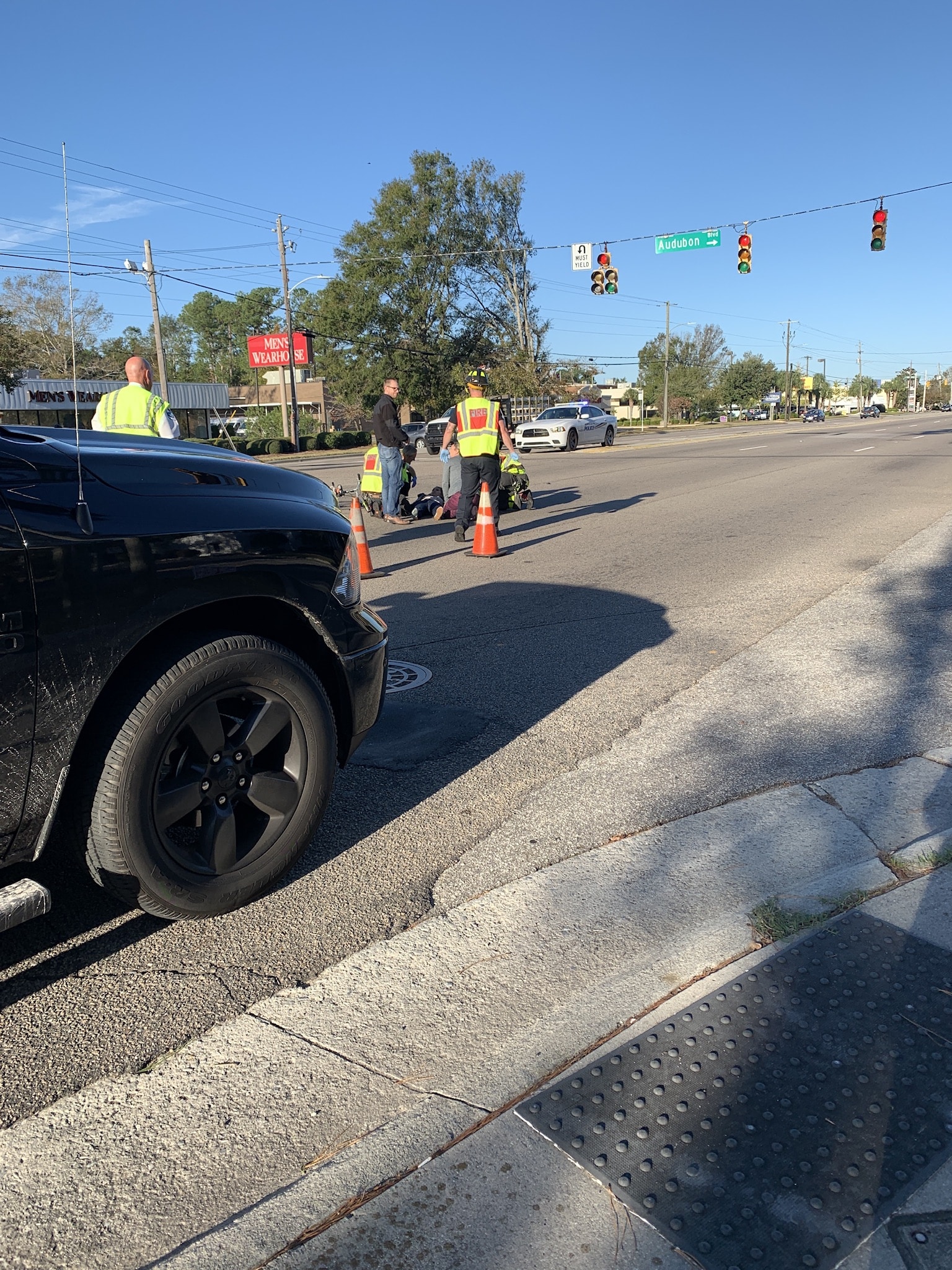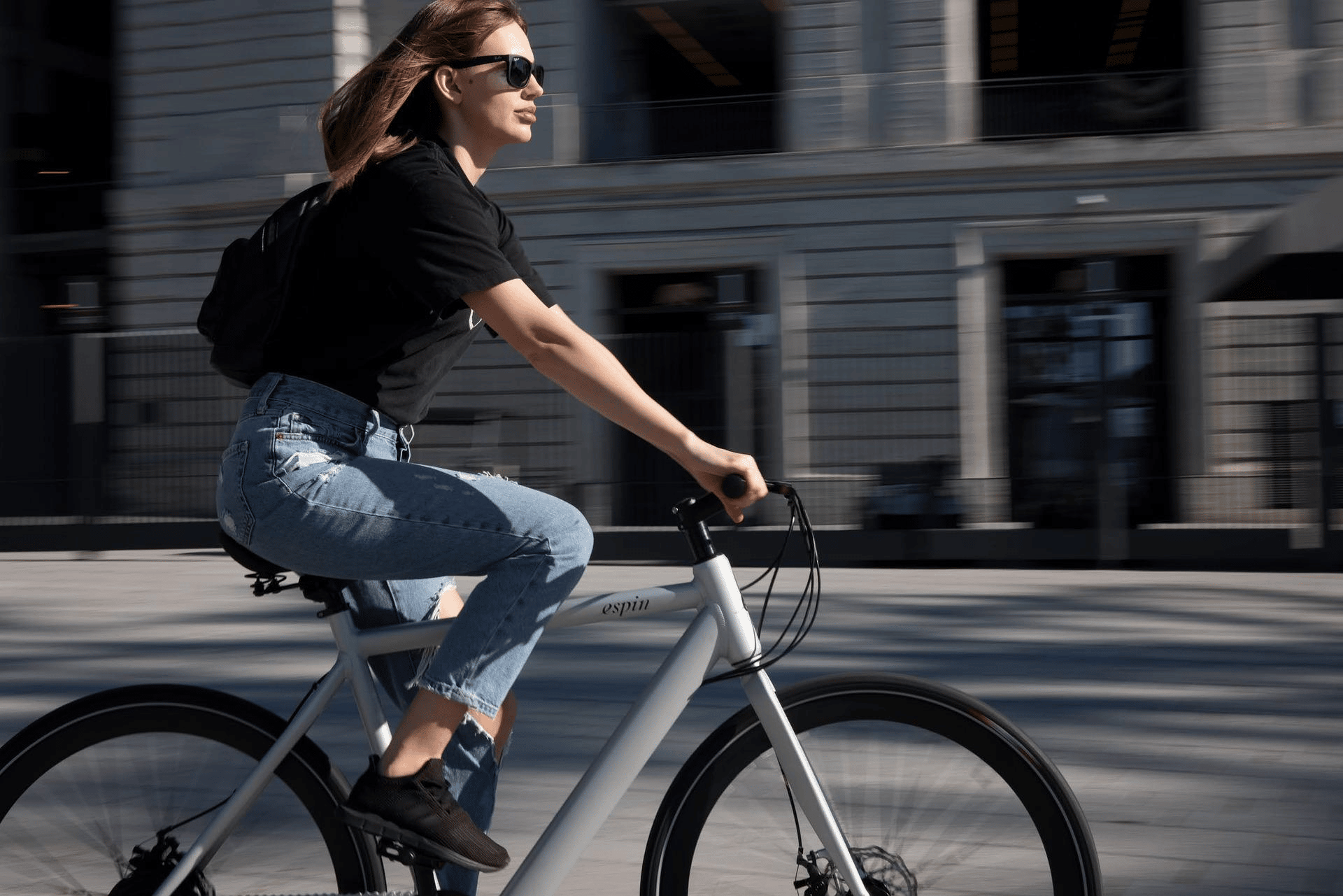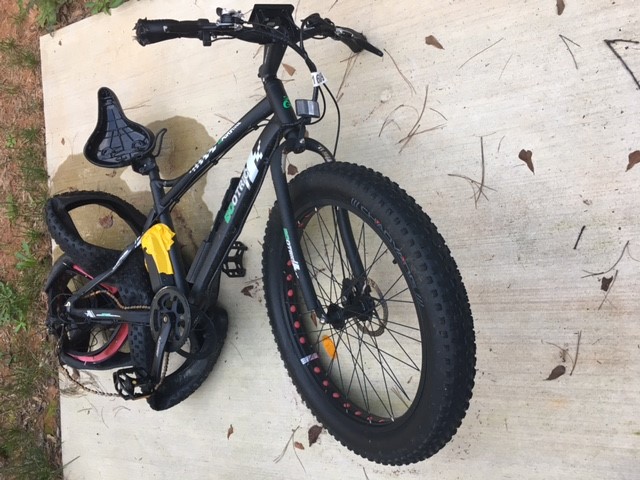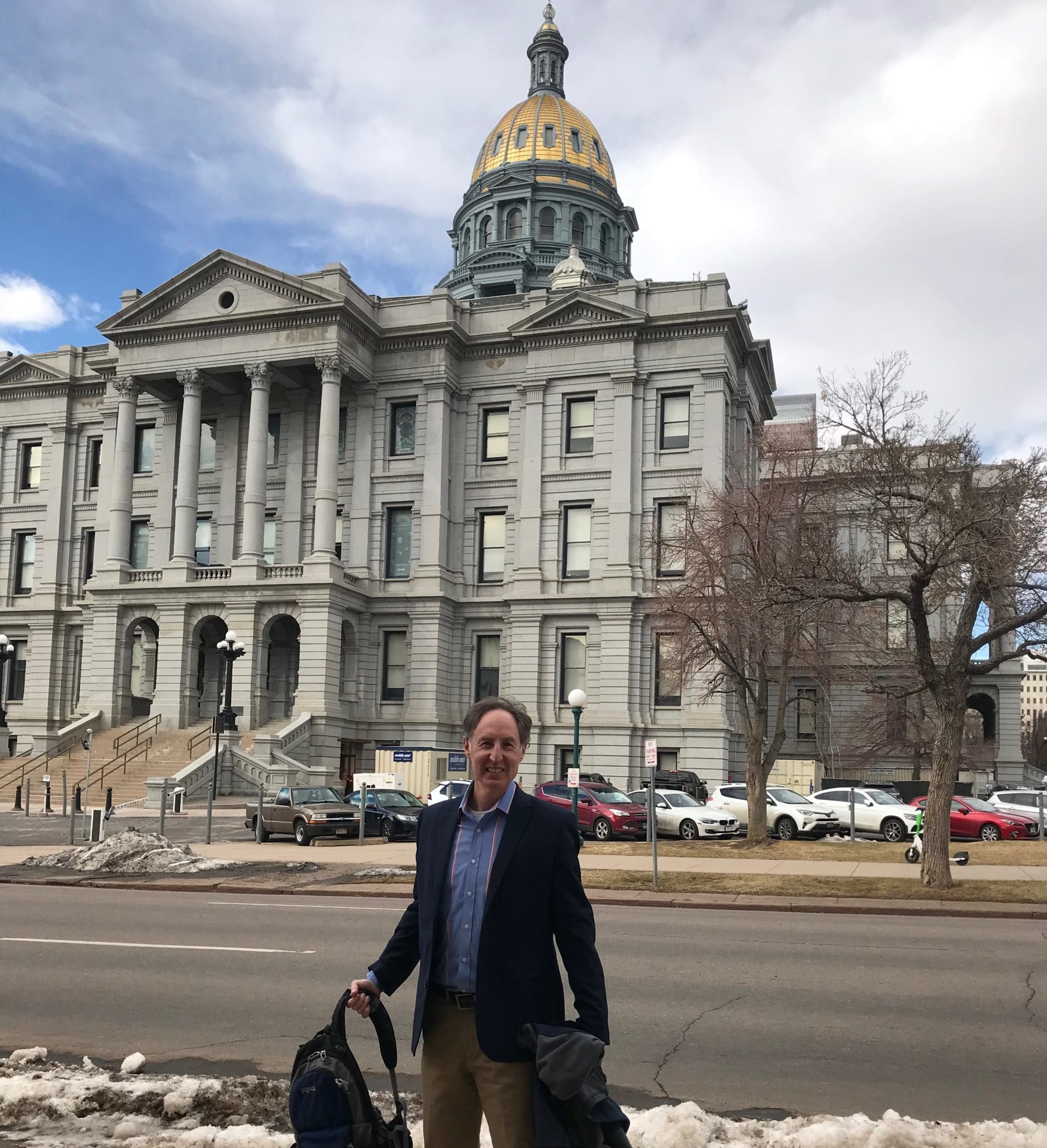“How about I get out and f*** you up in front of your kid?,” says the person driving the car next to me. And a Happy Mother’s Day to you as well…
Here’s what happened and here’s how I fought back.
As someone who both drives a car and rides a bike, I consistently urge mutual respect and common courtesy among all people using our roads. I stop at red lights and stop signs regardless of my mode of transportation. When on my bike, I ride with the flow of traffic and use lights at night. I also give polite “please” and “thank you” waives. The world seems to operate more smoothly with such communication and pleasantries.
On Mother’s Day, I was on my bicycle with my toddler daughter, Colette, in tow behind me. We were heading to the New Orleans CycloFemme ride organized by Marin Tockman. I told Marin that I’d represent Bike Easy and be a ride ambassador to help with any issues along the way. I also wanted to share the experience with Colette for her first ride-along of this type. Colette primarily enjoys the ride with a squeaky toy, while checking out the passing scenery and looking forward to jumping out and playing in different spots along the way (for example, gardens of wildflowers in City Park).
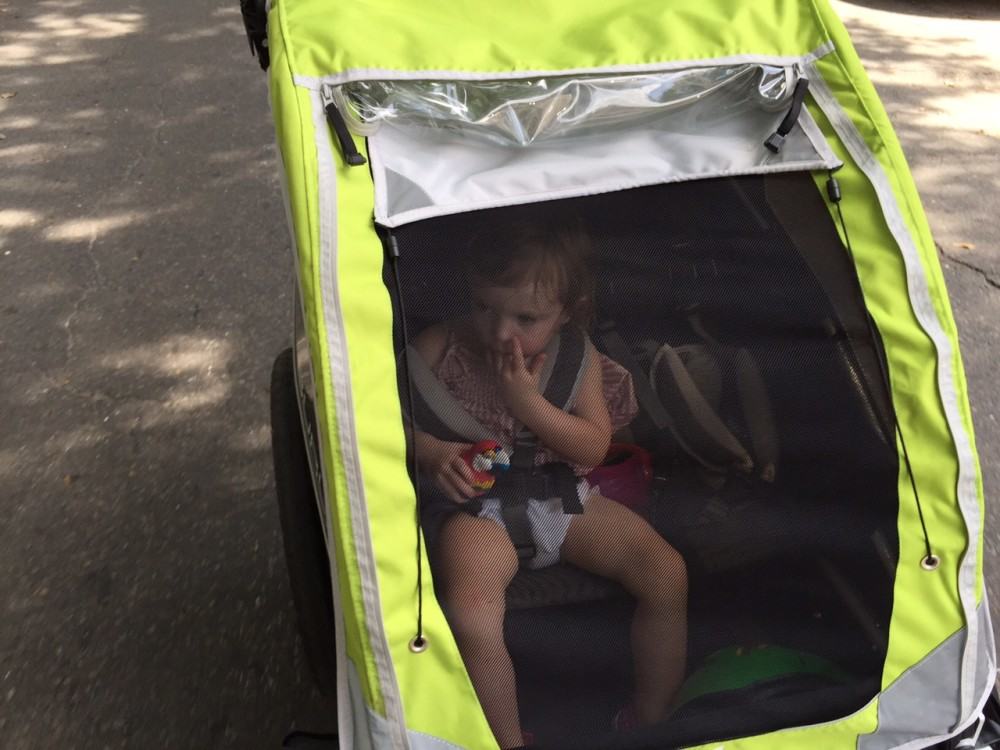
Here’s the good news. For the vast majority of the ride, every person that passed our group in a car seemed to give us a wide berth and pass at a reasonable speed. The obvious risk of something very bad happening increases exponentially when these factors are disregarded. This is a public thank you to everyone driving that we encountered that day, except one.
Just before arriving at Dashing Bicycles on Rampart Street, I was riding on Esplanade heading towards the Mississippi River. This stretch of roadway is two-ways, separated by a median with one wide lane for travel next to a parking lane. While riding down Esplanade, many cars passed me with plenty of room. I was staying as far to the right as practicable to be as courteous to passing motorists. Then, one car whizzed by me. I felt the strong punch of moving air. The driver was going a significant amount above the speed limit. He also passed me inside the 3’ zone of no passing under La. R.S. 32:76.1. He then continued to speed to the red light at Rampart Street, where any saved-time advantage from speeding was negated. The car had an Alabama license plate. I decided to make contact with the driver to let him know about Louisiana’s 3’ passing law, especially as Alabama does not yet have a safe passing law.
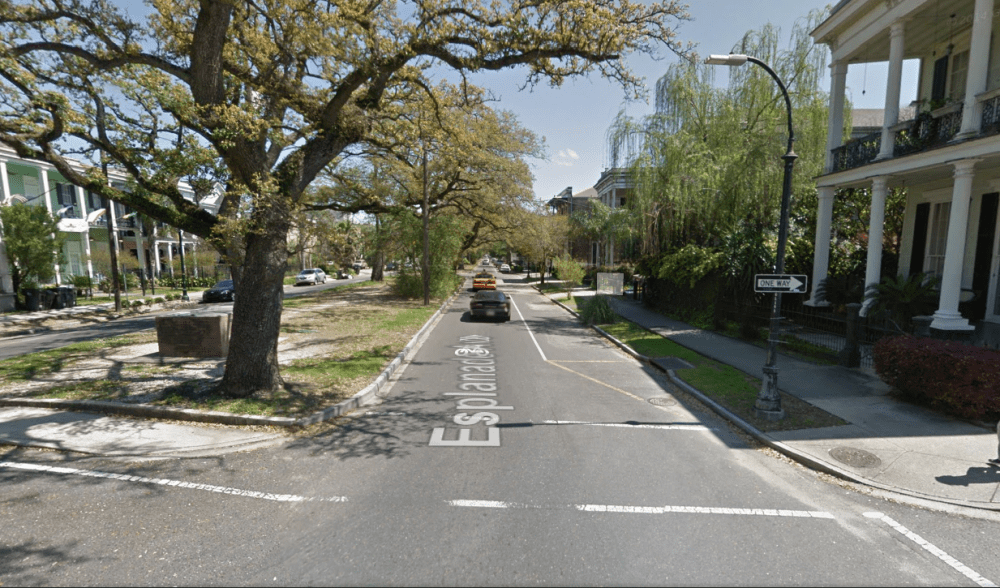
I wanted to welcome him to Louisiana, a state that’s becoming more and more bicycle friendly. New Orleans has striped an average of 10 miles of bike lanes per year for the last decade. Our bicycle commuter rates are among the highest in the country. And we have bicycle advocacy groups across the state (Bike Easy, Bike Baton Rouge, Bike Lafayette, Bike Shreveport) that are attempting to make biking safer through education and enforcement. Everyone has a role, no matter how short-lived the traffic situation, to improve roadway relations.
In doing my part in this situation, I rolled up to the passenger’s side window of the offending car and asked him to roll his window down. He complied and stuck out his middle finger before the conversation even began. Keeping my cool in the spirit of trying to improve this dynamic on a larger scale, I told this guy that “in Louisiana, you have to leave 3 feet when passing a bicyclist.” The driver responded by trying to tell me that he’s from Louisiana despite the Alabama license plate: “I went to [name of all-male high school in New Orleans], asshole.” After a deep breath, I told this guy that he passed way too close to my daughter and me and to just be more careful. His response came back as a tough-guy yell: “How about I get out and f*** you up in front of your kid?” After this threat, I broke off the encounter knowing that he was likely having a bad day or perhaps not loved as a child. While it was not going to be productive or safe to further engage in futile conversation with this guy, I will nonetheless bring this matter to a just conclusion through other means.
People should be held accountable for breaking the law, whether behind a steering wheel or handlebars. This is especially true when their actions endanger others. It’s unclear whether the driver in my situation knew that Louisiana has a 3’ passing law. It is clear that he handled the situation poorly by rejecting the polite, educational heads-up and instead yelling threats from the driver’s seat of his car. Nevertheless, I doubt that he knew that I’m an attorney with a commitment to making the roads safer for all users. This driver has elected the enforcement consequence over the education option, which is fine as I’m armed with a pen and the laws that the Louisiana legislature passed to govern how we’re supposed to act in traffic. This includes the non-harassment of people on bicycles in La. R.S. 32:201.
In continuing to do my part, he will understand – through a traffic court citation, a letter to his insurance company putting them on notice of his driving disposition, and/or a civil action – that there are consequences for disregarding the rules of the road in a way that will make him think twice about endangering and threatening someone again.
Moving forward, the silver lining remains that only one incident like this happened on a multiple hour urban ride. I’m optimistic that all roadway users are realizing that working together with a small dose of patience will go much further than an instantly-combative approach. So let’s continue to try and take deep breaths and defuse situations when possible. And when this isn’t possible, make sure to get a picture of the offending person’s license plate with your cell phone and immediately type out what happened, quotes and all.

Charlie is a bicycle accident lawyer in Louisiana, Texas, and Mississippi and a member of the Bike Law Network.
Having served as the president of the Texas A&M Cycling Team, where he led the team in appearances in the U.S. Collegiate National Championships, Charlie has spent thousands of hours riding his bicycle in Texas.







